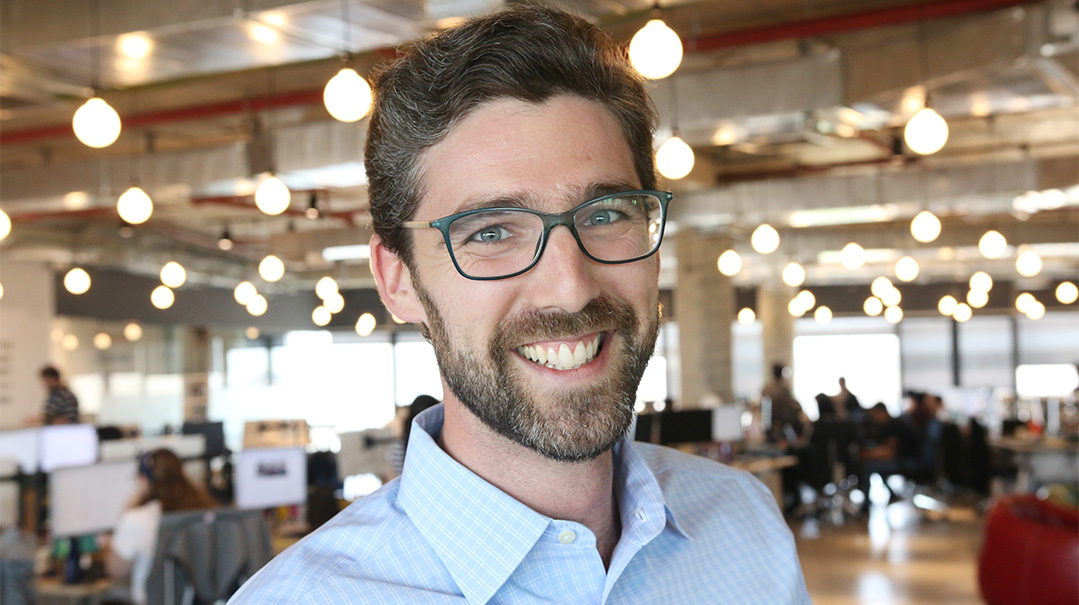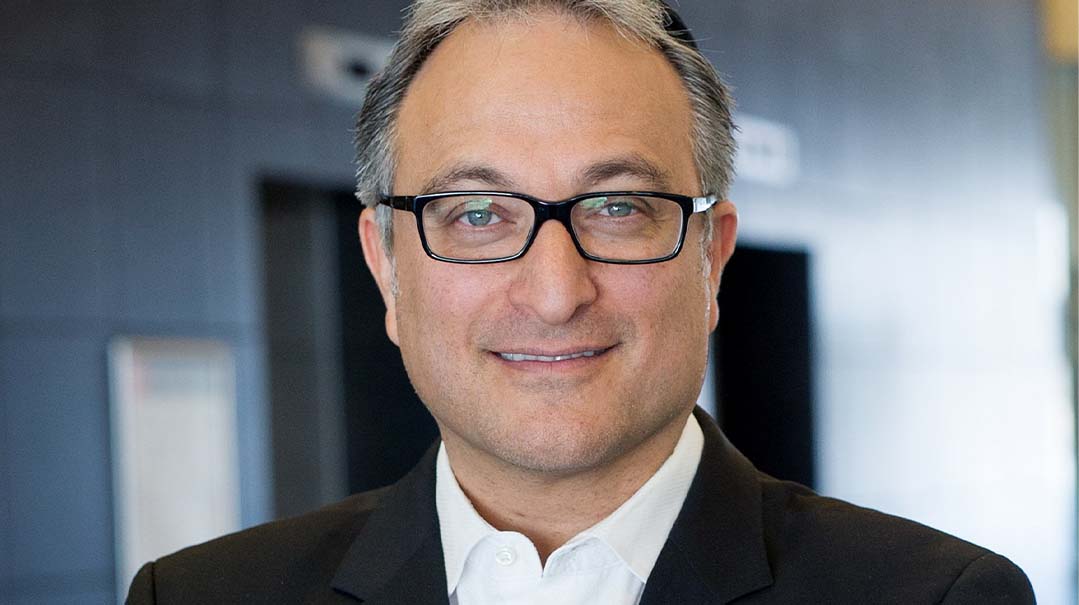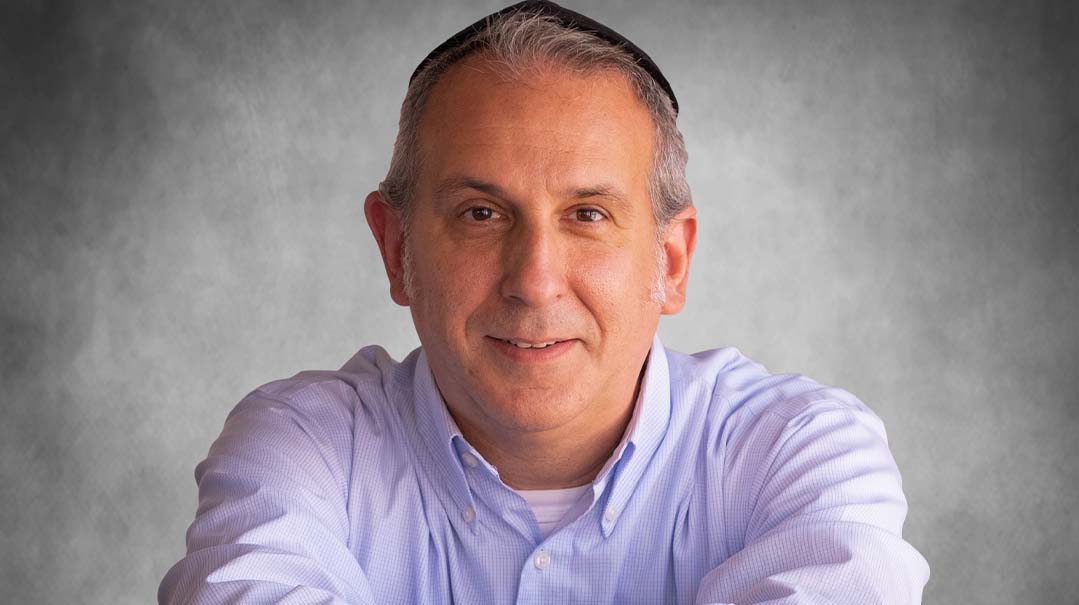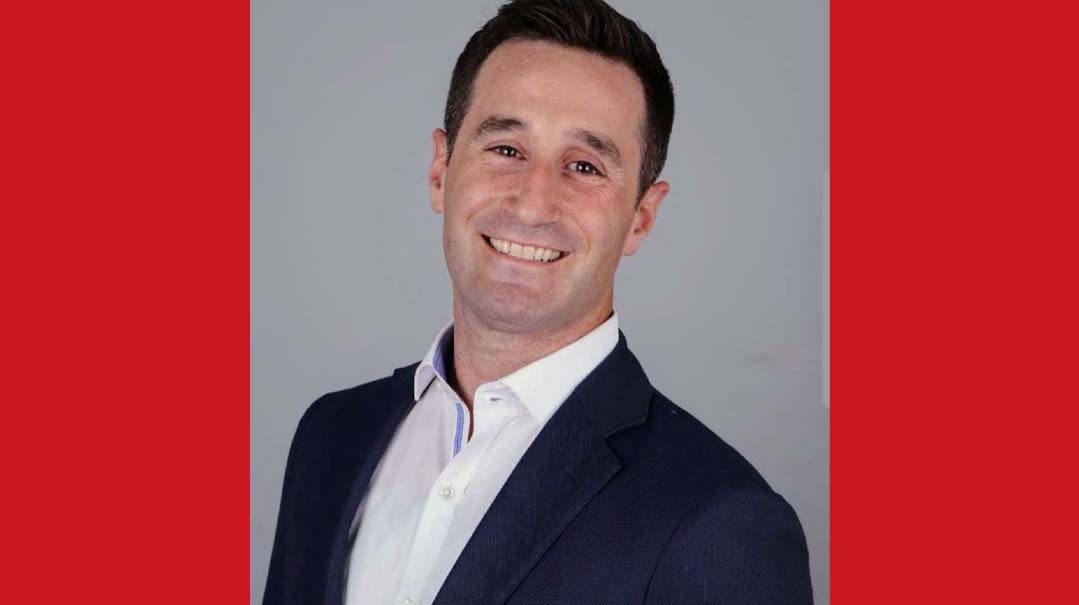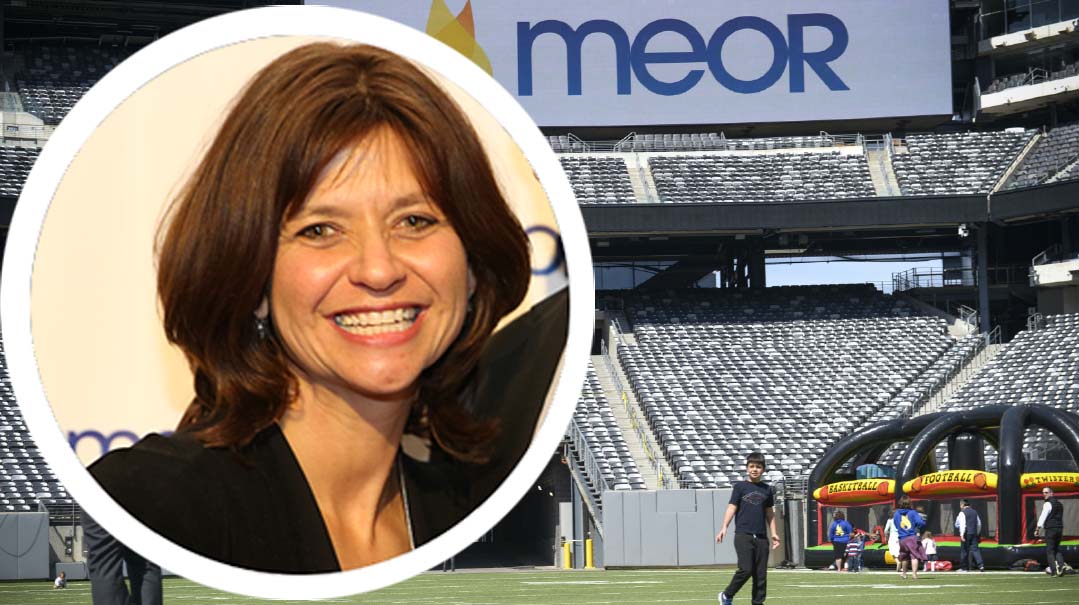Work/Life Solutions with Alex Oppenheimer

Do work with great people who you respect, share vision with, and relate to
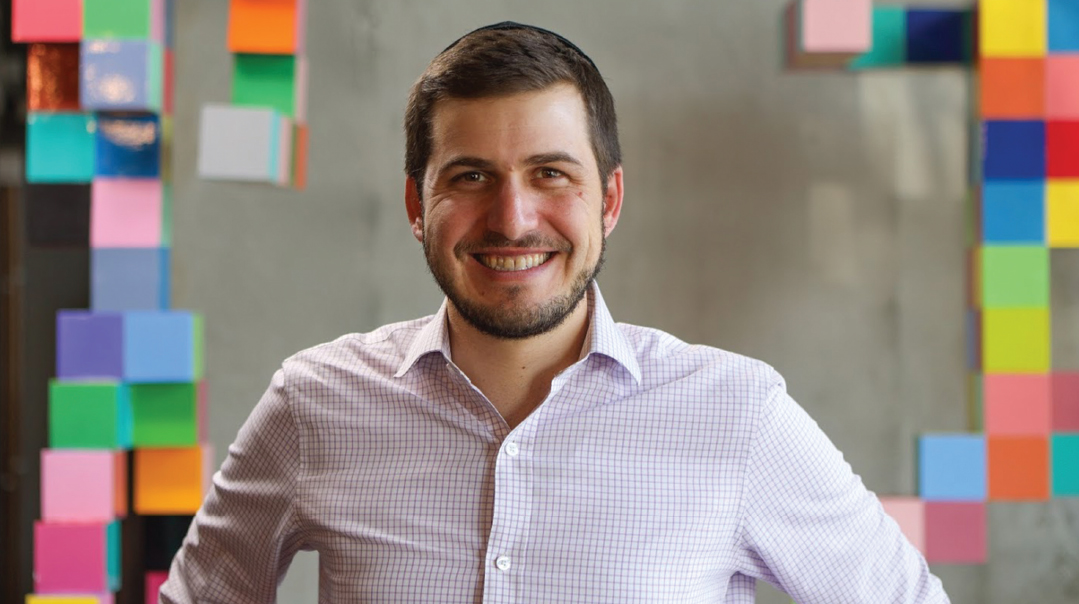
Who: Alex Oppenheimer, investment banker and tech investor (and committed ben Torah).
What: After studying mechanical engineering at Stanford University, Alex worked at Morgan Stanley in Silicon Valley doing tech investment banking for two years (where he worked on the Facebook IPO and a number of other high-profile mergers and acquisitions). He then relocated to Washington, D.C., and spent two years at New Enterprise Associates (one of the world’s largest venture capital funds, with over $20 billion in assets under management), where he focused mostly on early-stage enterprise software investing. After moving to Israel, he worked at GE Ventures while learning at Machon Shlomo in Har Nof, and today he continues to learn, advise companies, and makes investments.
Where: Born and raised in Marin County (just north of San Francisco), Alex went to public school and Reform Hebrew school through his bar mitzvah, and then “retired” from Judaism... only to be reconnected in college through Meor at Stanford. After learning at Machon Shlomo and getting “a kick in the pants from [venture capitalist] Michael Eisenberg,” Alex moved to Israel in 2016, and now lives in Jerusalem’s Rechavia neighborhood with his wife, Yael.
Why: At only 30 years old, Alex has become a veritable legend. Not only has he worked on some of the biggest tech deals of the last decade (e.g., Facebook’s IPO), but he also exemplifies an authentic Torah lifestyle by his commitment to learning Torah and doing chesed. He’s honest about the challenges he’s faced straddling the professional and spiritual worlds (especially in becoming a baal teshuvah), and makes bold decisions to ensure that he can continue to grow as a frum Jew. I’m confident that we can all grow from Alex’s inspiring story.
2 of 9 Which three character traits have played a key role in your career path?
Diligence and Hard Work: In school, I took pride in how little work I could get away with and still do well. I went from a competitive academic high school to mechanical engineering at Stanford, so it’s all relative, but that attitude stopped as soon as I transitioned to working. In banking, I was putting in 16- to 20-hour days, seven days a week. I showed up at the office at 9 a.m. and rarely left before 2 or 3 a.m. — every day for an entire year. I would even stay an extra hour at night sometimes to practice LBO (leveraged buyout) models for private equity interviews. I recognized early on that I was supercharging my career. By the time all was said and done, I had effectively gotten five years of work experience in two years based just on hours worked. I was very lucky to have been working for industry-leading professionals on big deals, but I give myself a little credit for keeping my nose to the grindstone and pushing the limit.
Giving: I am a true believer in the importance of chesed. Whether it’s Rav Dessler’s Torah on giving and taking or Adam Grant’s book Give and Take, I’m in. Since college, I have spent a large amount of time advising younger friends on their careers, training interns and new hires, and helping companies — all without any compensation. Each conversation not only helps the other person, but also helps me — I learn something new about a business, role, or person, or I help improve the efficiency of my team. I have found that one of my biggest value-adds professionally is being able to connect the right people, and in order to do that effectively, I’m constantly thinking about other people and what they need.
Focus on the Big Picture: Keeping in mind a broader context for what I’m doing has been a consistent force in my career. On a macro level, it has allowed me to get involved in some very cool stuff that may not have seemed worthwhile at the time. And it’s also what led me to being okay with being on the bottom of the totem pole — being able to see how big and lasting it really is. On a micro level, this focus has kept me organized and efficient. I am always the guy building templates, creating folder structures and doing other seemingly mundane things on the front end so that later on everyone shares the efficiency gains.
5 of 9 If you were granted an extra three hours per day or a spare million dollars, what would you do with that time or money?
Learn more Torah. It may sound like a cliché, but I genuinely feel a bit behind in this area, so any additional time that I can wrangle I try to put toward Torah learning. I would probably fund a kollel in the nonexistent basement of my house so that I would never have an excuse not to learn seriously with people who are engrossed in learning.
6 of 9 What is the most inspiring feedback you’ve ever received? How did that impact what you did next?
Here’s some helpful background to my answer: During my time at Stanford, I met Rabbi Ephraim Kamin on campus and attended my first ever Shabbat dinner (I am now approaching 150-plus meals at the Kamins’ house in Palo Alto). I also went on Birthright that summer, which was my first-ever trip to Israel. Then, while working around the clock at Morgan Stanley, I discovered why I truly need Shabbos in my life. Later, while working for NEA, Rabbi Zvi Teitelbaum and his program, Mesorah DC, had a huge impact on me by providing an infrastructure and community to learn and grow.
With that in mind, when NEA asked me to stay on for a long-term career at the firm, I responded: “Thank you, but would it be possible for me to take six months off first to go learn in Machon Shlomo in Israel?” I pitched it as an alternative to an MBA. They said yes and even gave me the push I needed to make it happen. I went back to NEA after this first stint in yeshivah and understood for the first time what a kiddush Hashem was when my boss, Harry Weller, said, “We need to sit down soon so you can tell me about what you did in Israel, because whatever it was, it worked.”
I felt more confident in my choice to go to yeshivah than I think I have ever felt about anything else in my life. He told me I was more clear and concise, had a better understanding of the different perspectives in the room, and seemed more professional. He completely validated the time I spent in yeshivah from a professional perspective. This feedback has continued to give me the comfort that every bit of learning I do is helping every part of my life, even the professional part. An hour in the beis medrash is not an hour of lost work; rather, it will have a meaningful impact on the work I do in the future.
Parenthetically, this also gave me the confidence to step away from work entirely in 2017 and go to Rabbi Barry Klein’s chaburah. After realizing that my goals and priorities were not aligned with my schedule, and if I wanted to become the type of Jew that I admired, I needed to invest properly in my learning and personal development. I broke my teeth on Gemara with guys five to ten years younger than I was who had little to no secular education, and I worked closely with Rabbi Klein to continue to develop my character. I had a transformational year not only in learning but also professionally — friends who ran companies and needed my help on finance were reaching out almost constantly, so I built up an advising practice and made seed investments during my afternoons. It was the best schedule I had ever had and I grew tremendously.
8 of 9 Can you share a time when you had to navigate the tension between your deepest values and the business world?
I feel like I’m navigating this almost every day. In my world of business, there is no question that I would be more engaged and rewarded for what I do if I decided to live in San Francisco or New York. I made a decision a few years ago that living in Israel is the priority and that I am not going to be able to control my success or relevance in any case — all I can do is put in work and try to do the right thing. That being said, it is still a challenge to look west and see some of the opportunities and remain steadfast in my commitment to stay in Israel.
9 of 9 If you were advising a young man/woman hoping to launch a career as an entrepreneur, which “dos” and “don’ts” would you share?
Do work with great people who you respect, share vision with, and relate to. Companies are groups of people — not the buildings, computers, code, or IP that they run on. If and when things get ugly, are these the people who you’d trust to be in the room? There is not much else that you can control besides the people with whom you work and spend time. Also, when starting a business, you need to humble yourself a bit and ask yourself, “Why should I be the person who’s going to build this?” Ideas are a dime a dozen and execution is king, so you have to be real with yourself about your capabilities and relative advantage at the beginning.
Don’t start a company for the sake of starting a company (or getting to say you are an entrepreneur). I have seen (secondhand) the inherent and brutal challenges of creating something from nothing, and if you’re not incredibly passionate about the specific problem that you’re tackling, it will be very difficult to maintain the energy level necessary to be successful long term. You need to love it and be obsessed with it.
Most important, don’t lose your connection with the big rabbis and Jewish ideals that matter most. It might seem that adding those few extra hours to your company or moving to another city will put you ahead, but in the long run, it’s the strong foundation, support infrastructure, and connection to something bigger that will make you successful.
(Originally featured in Mishpacha, Issue 774)
Oops! We could not locate your form.







